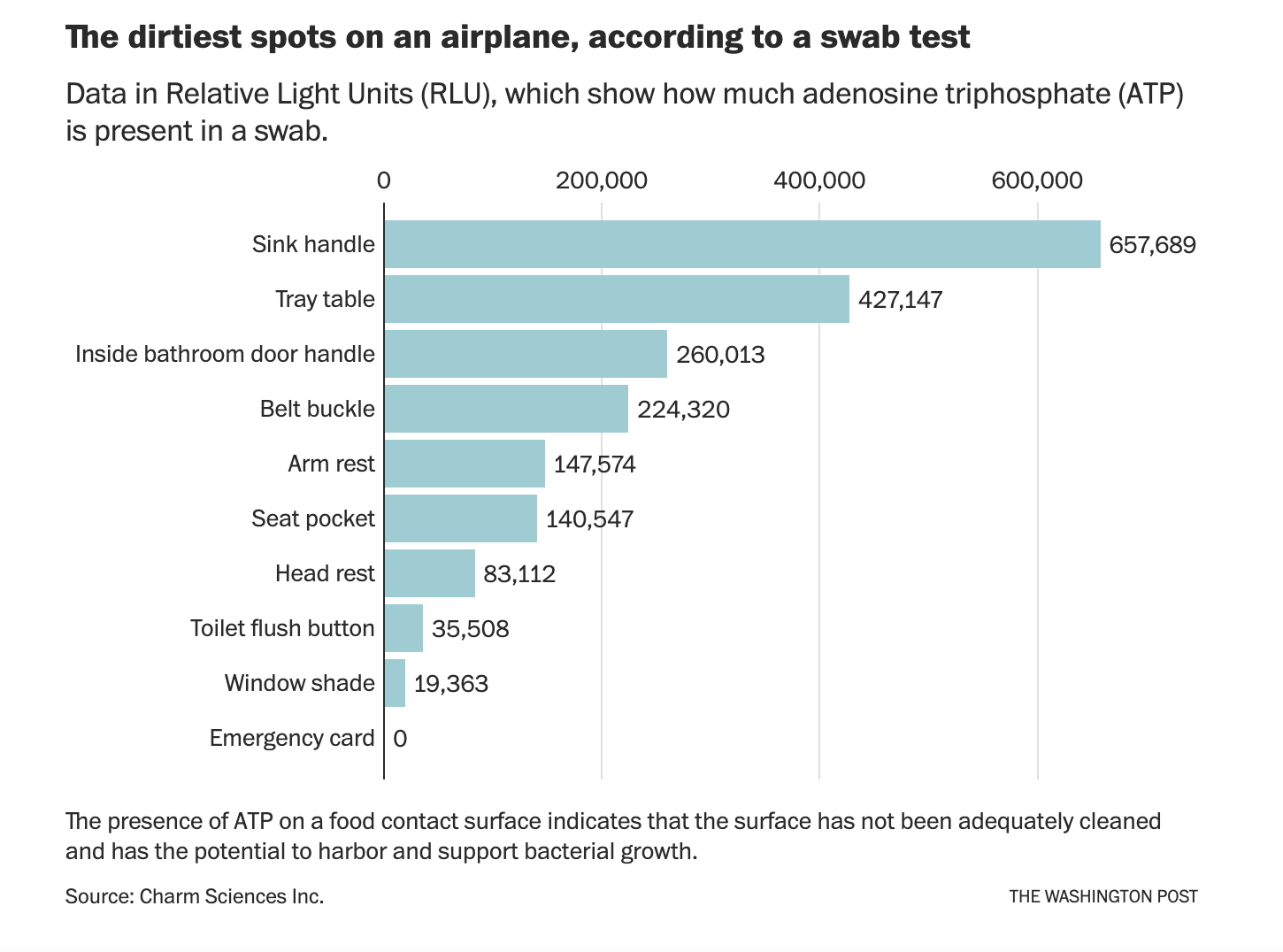How I maintain my wellness routine when I travel
Nutrition, supplements, and tips for minimizing jet lag.
Greetings from London! As I’ll be in Europe for the next two weeks, I thought this would be a good opportunity to share my tips for staying healthy while traveling. I’ll split this into three categories: pre-departure, on-flight and at destination. This applies to any type of travel, but if you’re only going for two-three days or on vacation, you can disregard some of these suggestions. In fact, if you’re traveling just for vacation, then I’d say the only thing you should do is enjoy yourself. Otherwise, my tips could help you feel more alive (aka less jet lagged) and preserve your routine for a smoother transition upon your return, without the need to exert extra effort to reestablish your good habits.
Pre departure 🏡
If I travel west from New York (most often to LA or SF), I don’t change my sleep schedule in the week before. If I travel east (to Europe), I will start going to bed a little earlier every night for five to seven days prior to taking off. This way, the night before departure I might end up asleep at 9 pm and wake up between 4-5 am. In order to effectively shift my bedtime, I have very early dinners (5 pm or so), stop ingesting caffeine after 10 am, limit exposure to blue light after 8 pm and take magnesium and melatonin one hour before bed. This helps my body adjust to the new timezone faster, and trick my circadian rhythm into perceiving the time difference as smaller.
In terms of what I pack, my wellness kit includes:
all my supplements - I use these travel cases or small ziplock bags
protein powder and a small shaker bottle
individually packed electrolytes
peppermint tea bags and some herbal teas for digestion (fennel, dandelion)
blue-light blocking glasses
workout clothes and shoes that can be used for different types of workouts
a small massage ball
if I have room in my luggage, a foam roller and my massage gun
The day of departure, depending on what time my flight is, I will have my usual breakfast (protein and fiber smoothie), limit caffeine to very early in the morning and try to get a workout in if I have time. For the most part, I try to avoid overnight flights at all cost as I find them horribly disruptive for sleep. If it’s a long haul flight, I’ll also pack food which I’ll describe in more detail below.
At the airport / in-flight 💺
Food on airplanes is notoriously bad as it consists mostly of processed crap served to you in plastic containers. I haven’t actually touched any of it in many years. Same goes for the options available in airports. In the US, you’re stuck with either Shake Shack or cookies and chips from the convenience store. If my flight is under five hours, I prefer to fast, not only to avoid eating processed food, but because digestion is also disrupted while flying. The changes in air pressure and the reduced oxygen levels in a plane's cabin affect our body's ability to absorb gas, leading to bloating and discomfort.
If, however, my travel time is longer, I will pack my own food for the trip. Based on how much time I have, I take one of two options:
Pick up a Sweetgreen bowl before I leave for the airport (I will get a custom salad with lots of protein and veggies) and eat it in the lounge before I board the plane.
The morning of my flight, pack a sandwich with toasted keto bread, turkey breast, roasted red peppers, sauerkraut (whatever else you like for flavor), an apple or some berries, an IQ bar or a few Chomp sticks. These are all high-protein foods that will keep me full and be somewhat easier on the digestive system if I eat them on the plane.
Hydration is essential on planes, and I usually have 500 ml (16 oz) water per hour of flying with added electrolytes. I am always shocked when I see people on an eight-hour flight only have a small cup of water handed to them by the flight attendants. Although drinking water from plastic bottles is terrible for our health, flying is the only time when I don’t have a choice but to pick up two to four large bottles of water before boarding. Even if I brought a reusable bottle, that wouldn’t be enough and under no circumstances would I refill it on the plane. Airplane cleaning practices are not federally regulated and it’s safe to assume that filtration systems are as bad as the rest of the airplane. For that reason, I also avoid having coffee, tea or ice cubes while flying. If I want a hot drink, I’ll buy some hot water at Starbucks before flying and add my own tea bags.
A side note regarding hygiene on planes: if you are going to eat in-flight, do not put your food directly on the tray table as it’s one of the dirtiest spots on a plane. Wipe it with disinfectant wipes first and then cover it with tissues or something like a magazine. I actually wipe everything including my seat, screen and seatbelt buckle and have been doing so long before COVID. And please, please don’t touch stuff in the lavatories or go to the bathroom barefoot (yes, I’ve seen this more than once).
Finally, for every hour spent sitting, I get up and stand, walk or stretch for five to ten minutes. This prevents swelling and water retention as well as stiffness and back pain. If you’re at risk for cardiovascular problems or have high blood-pressure, prolonged immobility can lead to developing embolisms or blood clots.
At destination 🛌🏻
Depending on what time I land, the first thing I do is squeeze in some movement. I always try to book a hotel with a gym or one that is near a gym. If I can’t do a proper workout, I’ll go for a walk. Getting outside is also great for helping the circadian rhythm adjust, especially if I am able to view sunlight first thing upon arrival. If I get in during the night, I will make sure to view sunlight immediately after waking up the next day.
To minimize jet lag, I never nap and go to bed in the evening, anywhere between 10-11 pm local time. If I can, I will do a mini evening routine with some foam rolling, warm shower, wear blue-light blocking glasses before bed and take my evening supplements.
Traveling takes me out of my “zone”, so the one thing I do to regain focus is maintain my morning routine. I wake up, hydrate very well, have a protein shake with just water or a shot of decaf espresso if no healthy food options are available, meditate, journal, workout and then go on about my day. These habits bring a sense of familiarity and groundedness irrespective of where I am which allows me to not get sidetracked.
As for nutrition, I only have one rule when traveling: if I can’t control the quality, I will be more mindful about quantity. In an ideal scenario, I will continue to east mostly whole foods with an emphasis on protein and plants. Invariably, however, I will eat in restaurants more than I do at home, so I try to eat slightly less to adjust my energy intake. I do look for the most nourishing options and if I’m in a location where they have great produce or great supermarkets, I will get a few things (fresh berries, nuts, greek yogurt. etc.) to bring back to my hotel room. One tip is to always ask room service to empty your mini bar so you can use it for your own food and water.
Lastly, here’s my go-to supplement stack for traveling:
For immunity: vitamin D, vitamin C, Zinc, Quercetin, B complex, Omega
For digestive health: probiotics, digestive enzymes, magnesium citrate
For sleep: magnesium glycinate or l-threonate, melatonin
As I mentioned in the beginning, if you’re going on vacation, just enjoy yourself. Moving your body, eating and sleeping well are still important, but you’ll get even more benefits from relaxing and giving your nervous system a break. One thing that’s still true though: airplanes are just filthy buses cruising through the air. Wear your shoes, drink your water, don’t touch stuff.



